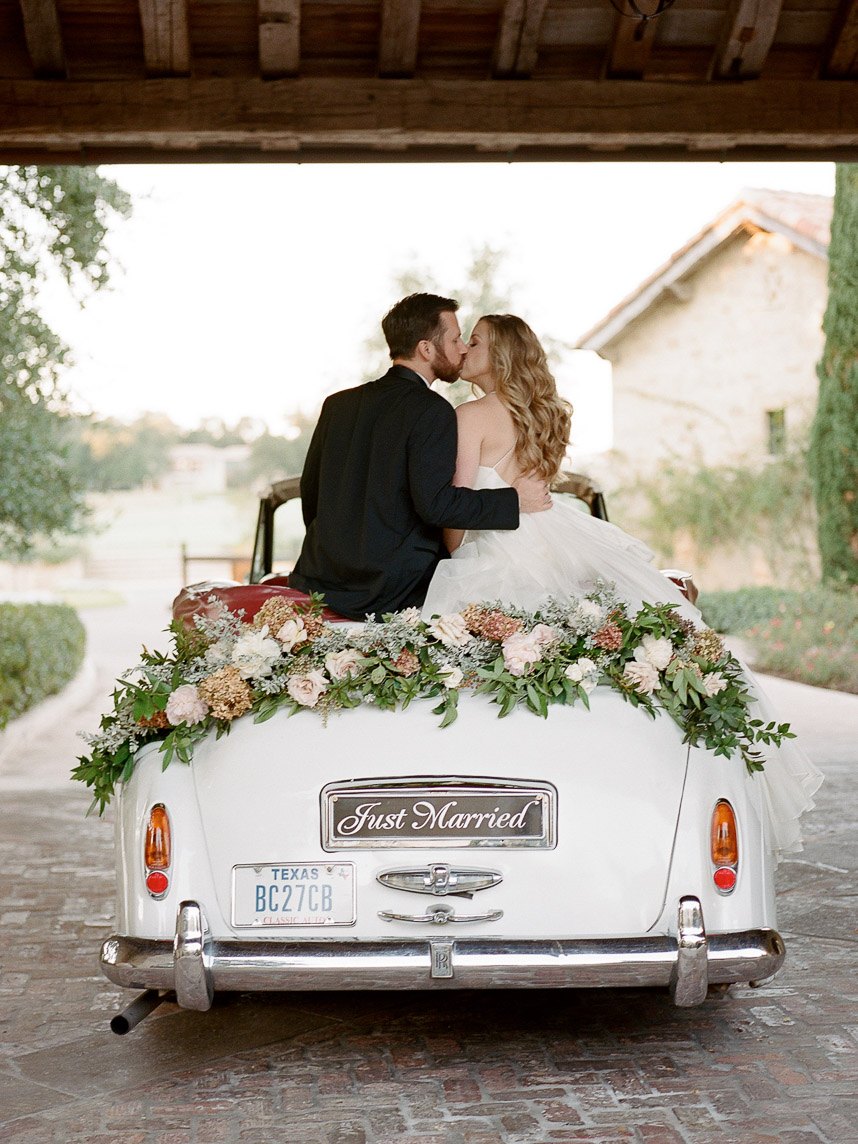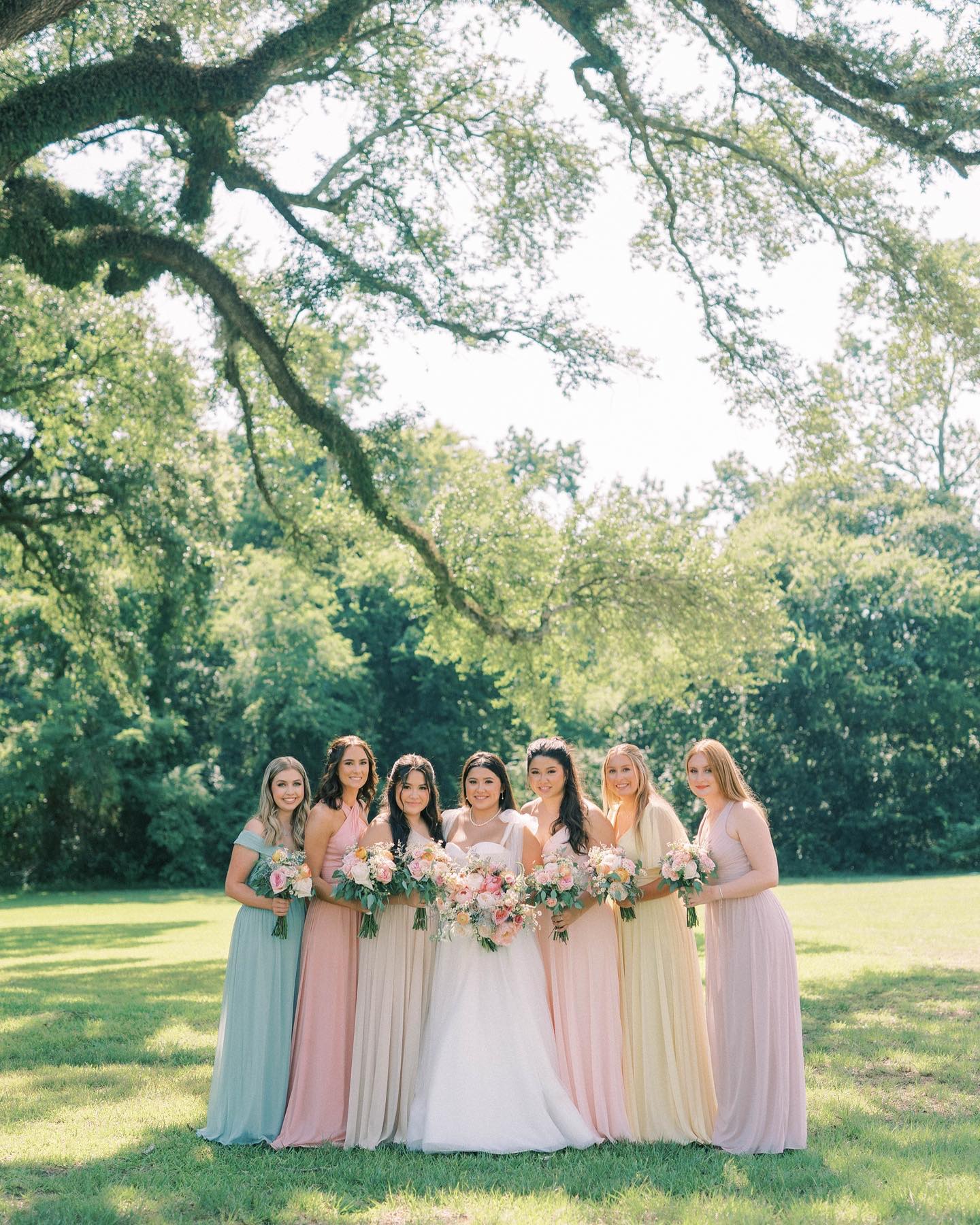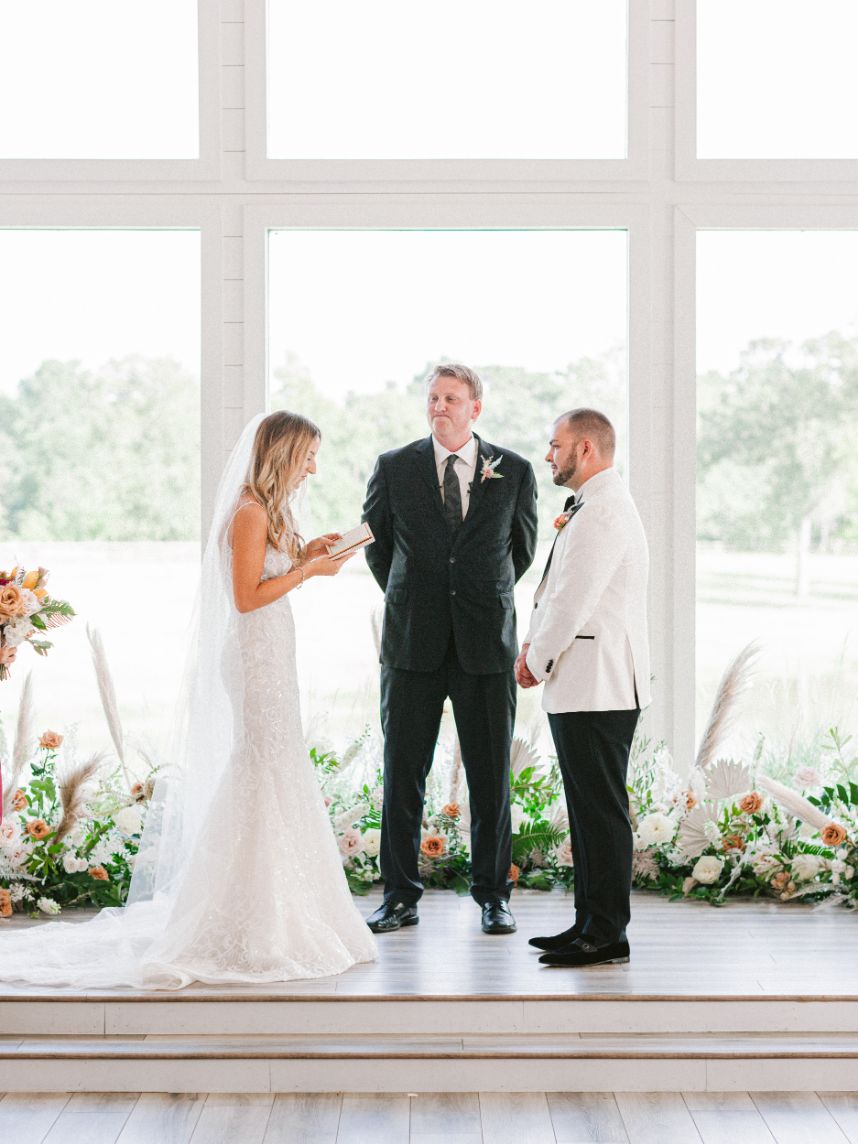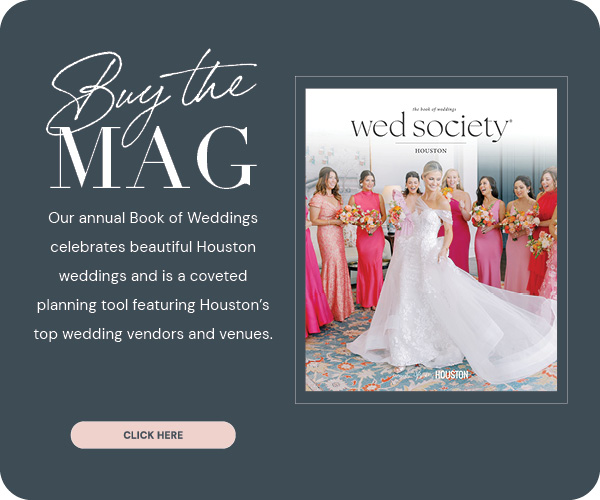We know the feelings of excitement leading up to your wedding day – there’s no comparison! But in Texas, before you head to the altar, you’ve got to head to the courthouse to purchase a marriage license in order for your union to be legally recognized. This important step is a must and a big one for your pre-wedding checklist. Scroll below to review the steps you’ll need to take to obtain a Texas marriage license (don’t worry, there’s nothing too involved) and make sure you are officially good to go before you say I Do!
Photo: Davy Whitener
Where and When to Go
Unless you meet the requirements for a common law marriage, you’ll most likely be applying for what’s called a Formal Marriage License. Both you and your fiancé must appear in person at the county clerk’s office. This office is typically located within the county’s main courthouse. Harris County has ten different locations for your convenience.
Make the trip at least 72 hours before your ceremony, but no more than 90 days beforehand. Texas marriage licenses expire if the ceremony isn’t performed within 90 days. If you’re recently divorced, there’s a 30-day waiting period before you can apply for a new license.
Check with your nearest county clerk’s office to verify their hours of operation before you go. If you live in a heavily populated county, it may be wise to ask if certain days are better in regard to wait times. When it’s your turn, you’ll appear before the clerk, answer a few brief questions and be on your way! The process is typically fairly quick.
What to Bring with You
Payment | Marriage license fees vary by county in Texas but typically cost between $70 and $90. Certain counties charge credit card fees or may not take personal checks, so it’s often best to bring cash. If either you or your fiancé is not a Texas resident or can’t prove your Texas residency, you’ll need to bring an additional $100.
Valid form of ID | Bring your driver’s license, state ID card, passport, visa or military ID. Each party also must know their social security number.
Twogether in Texas certificate, if applicable | If you and your fiancé have completed a pre-marital counseling/education course that meets the Twogether in Texas requirements, bring your completion certificate. Certain counties offer a discount for completing this type of course (sometimes as much as $60 off your marriage license!).
Again, check with your nearest county clerk’s office to verify their fees and accepted payment options prior to making the trip. Local Houston brides, here’s the info for Harris County.
Keep in Mind
Not only must you obtain a marriage license prior to your wedding and have it signed by all the privy parties, don’t forget your officiant needs to meet the requirements, as well! You must have a licensed or ordained minister, priest or rabbi, or a judge or justice of the peace performing your ceremony. Additional wedding witnesses aren’t required in Texas.
Texas residents can obtain a marriage license from any county in the state. The location of your wedding does not matter. However, if you’re planning on a destination wedding, make sure to research the wedding requirements for that particular state or country. If you’re wanting to host your wedding in a public place like a park or on a beach, check with the county and/or city about necessary permits.
Whoever performs your ceremony should sign and date your license after the ceremony and return it to the county clerk’s office from where it was issued, no more than 30 days post-wedding. After it’s officially recorded, you’ll receive your license back within 1-4 weeks. Then, it’s really official! Congrats!
Looking for more helpful planning tips like this? We’ve got even more helpful content for you here.
Featured in this Post
Other Local Vendors: Jordan Limousines, The Clubs at Houston Oaks, Chancey Charm Weddings, Davy Whitener Photography














